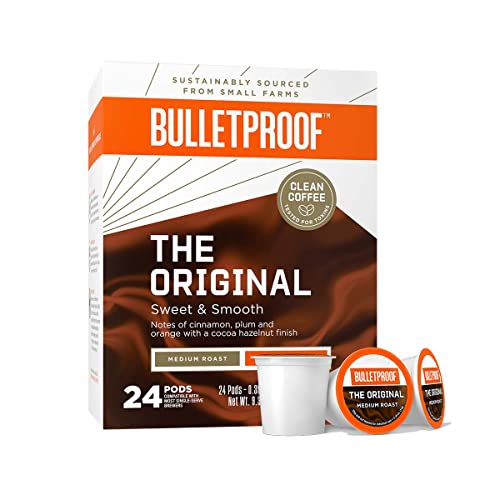Caffeine is a known stimulant and it can be found in coffee, tea, and chocolate. It’s also used in some over-the-counter medications. Caffeine can have benefits, such as improved alertness, but it can also have drawbacks.
There is no definitive evidence that caffeine aggravates seborrheic dermatitis. However, there is some anecdotal evidence that suggests it may be a trigger for the condition in some people. If you suspect caffeine may be exacerbating your seborrheic dermatitis, try eliminating it from your diet for a few weeks to see if your symptoms improve.
Let’s take a deep dive:
Is drinking coffee good for seborrheic dermatitis?
Caffeine is a stimulant that can have positive and negative effects on the body. In small doses, it can improve alertness and focus. However, in large doses, it can cause anxiety, jitters, and insomnia.
Caffeine may cause dry skin
Caffeine also has a diuretic effect, which means it helps the body to get rid of water. Some sources say this is bad if you have seborrheic dermatitis because it can worsen dry skin which aggravates flaking and scaling. You’ll probably need to be drinking lots of caffein and not much water for this to happen. If you’re only consuming a reasonable amount (up to 400 mg or 4 cups of brewed coffee a day) and drinking other non-caffeinated fluids, it shouldn’t affect your skin.
Caffeine increases cortisol and sebum production
Drinking coffee can certainly increase your cortisol levels, especially when you drink too much of it. And we know high cortisol leads to higher sebum production and worsens seborrheic dermatitis. Again, drinking a moderate amount of caffeine should not cause major hormone imbalances. Interestingly, researchers also found that drinking a stable amount of caffeine every day can blunt the cortisol response. In other words, your body gets used to it.
Caffeine affects sleep
Caffeine is a stimulant that many people rely on to wake up in the morning or to stay alert during the day. While it is true that caffeine can improve alertness, it can also cause sleep problems. Caffeine affects sleep by causing insomnia and disrupting sleep patterns. It can also make it harder to fall asleep and can lead to waking up feeling tired.
Fatigue and lack of sleep is a definite trigger for seborrheic dermatitis. Studies show the half life of caffeine for most people is about 5 hours. Most experts recommend you not drink coffee after 2pm.
Caffeine is anti-inflammatory
Caffeine has been shown to have anti-inflammatory properties and is loaded with antioxidants like polyphenols. These compounds may help to reduce the redness and inflammation associated with seborrheic dermatitis.
Do skincare products with caffeine help seborrheic dermatitis?
Caffeine can be found in some skincare products. Caffeine can have beneficial effects on the skin, including reducing inflammation and redness, and increasing blood flow. These properties make it a possible topical treatment for seborrheic dermatitis.
Coffee is a natural exfoliant
Some people have found using coffee grounds as a scrub helped remove excess oils and slough away dead skin cells, revealing brighter, softer skin underneath.
Coffee is anti-bacterial
Coffee grounds are also naturally antibacterial against gram-positive and gram-negative bacteria and can help to cleanse and tone the skin.
Caffeine has antioxidants
When applied topically, caffeine has been shown to have antioxidant and anti-inflammatory properties. This means it can help to reduce the redness and swelling associated with seborrheic dermatitis.
Does caffeine increase dandruff?
Despite some popular dandruff experts (cue Head and Shoulders) claiming caffeine can worsen scalp flaking, there is no definite evidence that it does. Supposedly caffeine leads to dry skin which can cause mild dandruff to appear worse. If caffeine is making your skin dry, you are drinking way too much of it and not drinking enough of good old water.
Side effects of topical caffeine
To use caffeine for seborrheic dermatitis, you can purchase topical products containing caffeine or make your own scrub with coffee grounds.
Caffeine is generally considered safe for the skin. However, there are some side effects that you should be aware of if you are using caffeine skincare products to treat seborrheic dermatitis. These include:
• Dryness – Caffeine can cause the skin to become dry and irritated. If this happens, you may want to reduce the amount of time you leave the topical product on your skin or use it less often.
• Itching – Some people may experience itching after applying a topical caffeine product to their skin. If this happens, try using a different product or diluting the concentration of caffeine in the product you are using.
• Redness – Topical products containing caffeine can sometimes cause redness and irritation of the skin. If this occurs, discontinue use of the product and consult your doctor or pharmacist
To wrap up
After all this to and fro, I can conclude that we don’t know for sure if caffeine is good or bad for seborrheic dermatitis. Moderate consumption of caffeine shouldn’t affect seborrheic dermatitis at all unless you drink it with milk and sugar which can negatively affect SD.
You may also be interested in whether a keto diet is good for seborrheic dermatitis.
 Check it out on Amazon
Check it out on Amazon Check it out on Amazon
Check it out on Amazon Check it out on Amazon
Check it out on Amazon
Pingback: What foods trigger seborrheic dermatitis?
Pingback: seborrheic dermatitis treatment